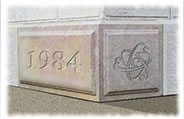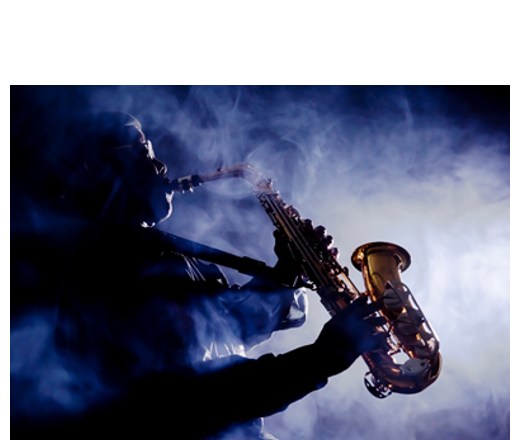Get Up and Wail!
The “Back to Basics” Series
“You’ve got to learn your instrument. Then, you practice, practice, practice! And then, when you finally get up there on the bandstand, forget all that and just wail!”
—Charles “Charlie” Parker, Jr.
August 29, 1920 – March 12, 1955
Also known as “Yardbird” and “Bird”
American Jazz Saxophonist, Composer
Miles Davis said, “You can tell the history of jazz in four words: Louis Armstrong. Charlie Parker.” Parker acquired the nickname “Yardbird” early in his career and the shortened form, “Bird,” which continued to be used for the rest of his life, inspired the titles of a number of Parker compositions, such as “Yardbird Suite,” “Ornithology,” “Bird Gets the Worm,” and “Bird of Paradise.”
We hold with Bird on this issue. There’s no question about the need for practice — especially if you want to get to Carnegie Hall… But what kind of practice, in what order, and for what purpose? But be careful. The wrong kind of practice can destroy a presentation. How? Well, we owe you that explanation. And those other questions deserve some attention too.
First, here’s how to get it wrong from the start…
Wrong
Most people don’t really practice at all. Instead, they spend every available minute working and re-working the text of the presentation. Composing. Writing, re-writing, editing, moving blocks of text and carefully correcting grammar and sentence structure. As their time runs out, they fold their script notes into an inside pocket, don that lucky tie, and mount the platform to speak. And they are moments from disaster! Because the most magnificent script cannot deliver itself to the audience — it requires a speaker — who’s in complete command. The fact is, the presentation is not in the script… If it’s going to work, it has to live — in you! So all that composition is not really practice at all; it’s merely a distraction… Let’s consider an alternate approach…
Right
Finish the writing already, get on with the rehearsal! Practice in sequence:
- Practice the Words. Get the message clear, concise and simple.
- Practice hard now on the Transitions, the Opening and Conclusion.
- Practice the Signature Components: Eye Contact, Movement, Gestures, Vocal Modulation and Pauses.
- Practice with the Visual Aids, Tools and Technology.
- Run it through one last time with Everything!
- If there’s an opportunity, do it on-stage with a live mic, Tech and Stage Crew.
Rationale
Now comes the moment! And something goes wrong, south or backwards — it’s unimportant, because things always go wrong. But a lot of people will get stuck in that frozen amber moment by wanting reality to be as it was in the rehearsal. And there’s no way home from there! Here’s a thought, the point of practice is not reliance on the script, but freedom from the script.
The reason for all that preparation, is to acquire a deep material familiarity. If you know the material, remembering the script is irrelevant. So don’t worry about the exact wording or the planned, picture-perfect gestures. Instead, stay with us in the moment, “forget all that and just Wail!”
Without rehearsal, if you get off track you don’t have the material certainty to find your way home. But hours of rehearsal provide the intimate familiarity with the place, the circumstances and the material that allows you to guide us to a climax — the desired, planned outcome — no matter how you choose to get us there.
Experienced speakers (or jazz musicians) will tell you “performance is always different in the little ways, but it’s always the same in the big result.”
A word about the standard excuse: “I don’t have time to rehearse, but I’m going to run through it in my mind on the way to the auditorium.” Hey, a lot of people have used that approach to distance running as well. Of course, few of them ever finish an actual marathon.
You may imagine yourself a great speaker, but in actual reality, you have to bring the audience home with you.
Applications
1. Personal
Perhaps it’s a toast/speech at a wedding. Maybe an introduction for a visiting scholar. Are you stepping in for an absent expert? Get to it early and rehearse. Of course, rehearsal becomes slightly less important as cumulative hours of experience expand. But those hours expand precisely because we put in the practice time off the bandstand. There are countless ways for you and your audience to find your way home together. Rehearsal (practice!) is how you discover each one.
2. At Home
Weddings. Rehearsal Dinners. Receptions. Graduations. Commencement Speeches. Plays. Awards Assemblies. Class Elections. Sports Banquets. The little moments that mark the high points of our lives. Without rehearsal, you can’t count on creating a timeless moment — at least, not a positive one. Take the time, steal away and rehearse. While you’re at it, set a good example for the kids and let them see the reality of Mom or Dad taking the time to practice in advance.
3. At Work
It’s the National Sales Meeting at the Hyatt in Pitt’s Landing, or the Waldorf Astoria, or the Agency Management Conference at the Ritz in Laguna Niguel, maybe the High Producer’s Gathering at the Peninsula in Chicago… Those speeches, interviews and panel discussions count! They’re not just intermissions between golf outings and dinners — they mean something, and a successful performance can make — or break — your career. Make sure your moment on the stage becomes a positive lasting memory! Take the time to rehearse.
Virtual applause is fine. But actual applause requires a ton of rehearsal. A successful presentation begins in your mind, takes shape in rehearsal and concludes in an auditorium. Bird had it right! Practice, practice, practice, then forget about all that, get up on the bandstand and just wail!
Subscribe to our Newsletter


